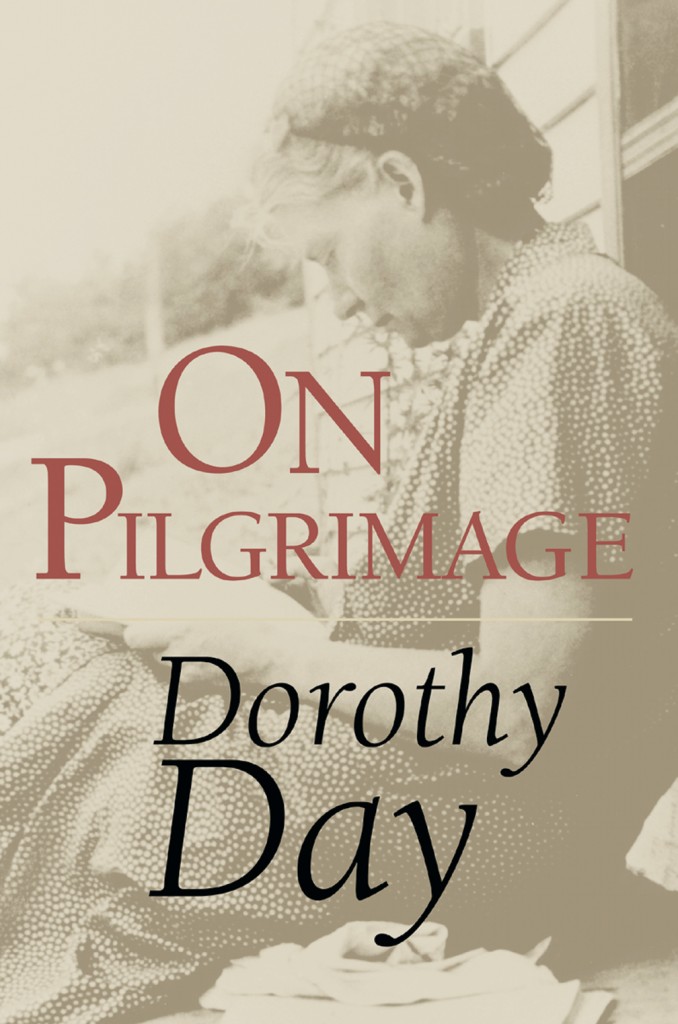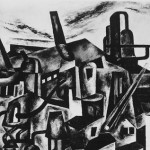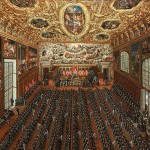
Kevin L. Hughes is Chair of the Humanities Department at Villanova University. He is the author of Constructing Antichrist: Paul, Biblical Commentary, and the Development of Doctrine in the Early Middle Ages and Church History: Faith Handed On, along with articles appearing in journals such as Modern Theology, Theological Studies, Franciscan Studies, and the Heythrop Journal. His recent work on Henri de Lubac will appear in Reading Scripture as a Political Act and the T&T Clark Companion to Henri de Lubac, and he is working on a book on Saint Bonaventure. He lives in Media, PA with his wife Bridget, a ceramic artist, and their three daughters.
This is a guest post.
=============
On July 12, returning from his dynamic trip to South American, Pope Francis bowed his head and thanked a journalist for encouraging him to think about the middle class. Pope Francis’s plane pressers have become “a thing,” as my daughters might say. That is, they have taken on a life and character of their own. From the infamous ‘Who am I to judge?” Francis has stunned the world audience with his casual and perhaps even incautious turns of phrase as he chats amiably with the press on his plane. “It’s a good correction, thanks. You are right. It’s an error of mine not to think about this,” he said. His papacy has been marked by constant reminders to the church and the world to attend to the poor, to be present to them. His speeches in South America repeated this strong resistance to the exploitation of the poor by “a new colonialism,” and his recent encyclical Laudato Si decries the exploitation of the environment, among other reasons, because the environmental crisis is felt most acutely by the poor who depend more immediately upon the natural world for their subsistence. But what about us?
Perhaps one cannot blame middle class people like us for feeling a bit beat up, for wanting to hear a consoling word, directed to us and the lives we live. Elizabeth Scalia, editor of PatheosCatholic and author of the popular Anchoress blog says it very well:
But sometimes, when I read Pope Francis exhorting us again about the poor, or the environment, and urging people once again, to take action, to go out into the world and fix-all-of-the-things, because Jesus wants it (and yes, I’m sure Jesus does) I can’t help thinking, “but Holy Father, have mercy! Do you not know that many of us are already doing the best we can? Some of us are doing all we can to keep the family together, keep food on the table, and maybe go out to a movie once in a while.
Pope Francis has heard that cry, and he has promised to spend some time thinking about it. I am very interested in what he has to say.
But I do worry that, if we insist on hearing Francis’s call through an “us and them” framework, if we insist on a little appreciation for us, the middle class, the non-poor, “doing the best we can,” we might give ourselves a pass a little too easily. Yes, we middle class folks do struggle in the day-to-day trenches of everyday life, and many of us feel utterly powerless to do any more than we are doing. But that very powerlessness that we feel is itself a symptom of the much deeper problem. It may be that we are all entwined in a global lifestyle-system that feels like fate and inevitability, and the assurance that “doing the best we can” is all we can do might be just the kind of soma we crave to make our claustrophobic middle class life bearable.












